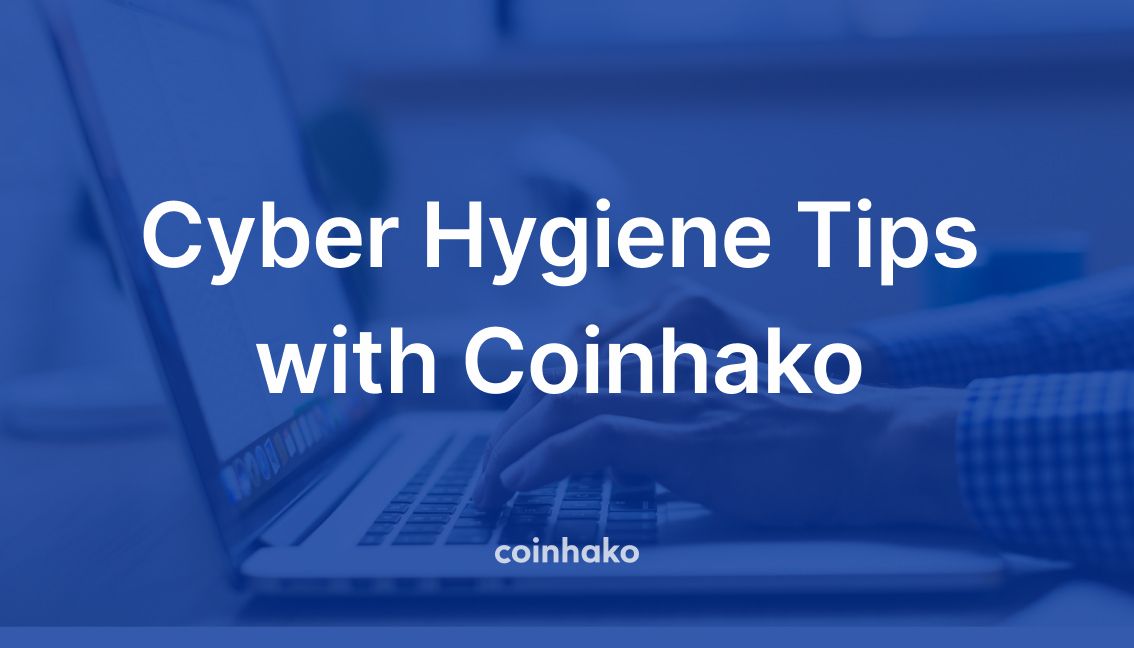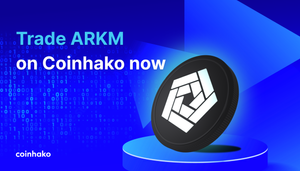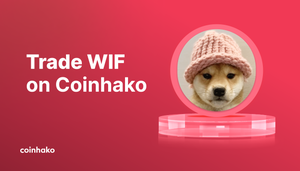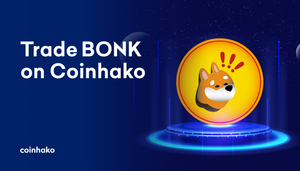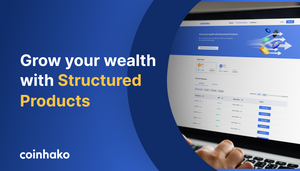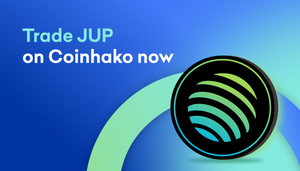Why care about cyber hygiene?
Cyber security is essential for anyone using the internet and its services!
In an increasingly digitized world, it is even more crucial for people to protect their financial assets and personal data, and for Coinhako users, the security of their Bitcoin and other Digital assets. Practicing good cyber hygiene ensures that key information such as passwords, login details and/or any other personal details are well-protected to safeguard the security of your tokens and funds.
How can you maintain good cyber hygiene?
This involves adopting a series of good practices to keep your devices — and personal data — in the pink of cyber health. We aim to help you protect yourself against cyber criminals and malware with just the quick tips.
For a broader list of data protection tips, click here.
1. Check on the URL - How do I know I’m clicking on the right links?
Many companies might use URL shorteners or subdomains to interact with audiences. This leaves room for link manipulation by bad actors.
We always advise our users to ensure that they are engaging with legitimate Coinhako platforms online.
As of June 2020, we phased out the use of external short URLS and will only share URLs which include our primary domain.
What is a subdomain?
A subdomain is an additional part of a site’s domain name. Let’s look at the anatomy of a typical URL for a clearer picture :
https://click.coinhako.com/dataprotection
In this URL, “click” is the subdomain, “coinhako” is the primary domain and ‘.com’ is the top-level domain. Companies use subdomains to help categorise various sub-sections of their website, and to streamline the user journey by directing users to the pages they need to see.
If you come across any other links that look like Coinhako but seem a bit iffy, it’s always wise to verify before clicking on anything.
Here is the latest list of Subdomains we use:
- https://blog.coinhako.com/
- https://support.coinhako.com/hc/en-us
- https://click.coinhako.com/anytopic - this option is usually used on our social media pages like Twitter and Facebook.
What does a suspicious link look like?
While a phishing link may resemble the official URL, here are usually ways to tell if something is off.
- The company name is misspelled or spelled differently
- The link looks like an untrusted site or contains unusual characters
- Comes together with an offer that is too good to be true (e.g YOU HAVE WON 0.5 BTC!)
- The embedded URL differs from the link shown
2. Be On The Look Out For Phishing
How do you spot the difference between a legitimate email and a phishing attempt?
Phishing has become one of the most common ways to extract data of unsuspecting online users and cyber criminals are adept at masquerading as business organisations – often putting together highly convincing emails that look like the real deal.
First of all, if the email subject appears to be urgent - or content that is specific to the recipient (you), it should address you directly. Opening lines like “Dear User/ Dear Valued Customer” should be a huge red flag in such instances.
Sender Domain
The next thing to take note of is the email domain name. Companies that reach out to their users via email usually use their official domain names.
If you are a user of our platform, you will realise that official emails are sent from hello@coinhako.com.
Cyber criminals may try to pass off as legitimate entities by tweaking small details and registering their own domain — for example, hello@coinhak0.com, hello@coinhacko.com — minor yet important details that may slip the layman’s eye.
Sentence Structure and Grammatical Errors
Odd sentence structures or grammatical errors are also big red flags! Based on where some of these scam syndicates are based geographically, these cyber criminals do not possess a native command of the English language as they come from non-English speaking countries. This is a telltale sign that the email is not legitimate.
Typically, transactional emails — especially where tokens, funds, or verifications are concerned — are templates and should be copy-edited beforehand.
3. Look out for SSL Certificates
What are SSL Certificates? What does SSL stand for?
A Security Sockets Layer (SSL) certificate is a digital certificate that helps to authenticate the identity of a website and encrypts information sent to the server using SSL technology. SSL technology also helps to protect sensitive information being sent between two systems.
SSL certificates also help to display secure connections via the padlock icon on your web browser. If the connection is secure, it should look something like this:
Platforms that require users to provide personal data, such as credit card information, often use SSL technology to encrypt information travelling from the website to server. This helps to keep user data private and secure.
How does this help fight cyber crime? SSL technology mitigates the risk of cyber criminals stealing sensitive information by protecting the sensitive data that is being transmitted between two systems — such as bank details, credit card numbers, addresses and passwords.
4. Use 2-Factor Authentication (2FA)
Two-Factor Authentication has been growing in popularity over the last decade because of its inherent added benefits when it comes to securing accounts.
Whether it’s One-time Password (OTP) SMS, Time-based 2FA tokens, or a Physical 2FA token, you will find the majority of platforms offering some form of 2FA today; Some even go so far as to offer an option to turn off passwords and rely on one of these authentication options for account logins.
At Coinhako we have always made it a point to emphasize the use of 2FA, as an added layer of security protection for all user accounts. We would also like to encourage everyone to keep the use of 2FA as part of their regular cyber security practices.
It takes only one leak from any other platform to compromise the security of a large number of accounts you might own.
Shouldn’t security be the responsibility of businesses?
The advancement of technology over the last decade has also led to the development of more methods for bad actors to run illegal, or criminal activity on others. Even the best security systems in the world might still be prone to some form of security loophole.
Educating yourself with the latest happenings and know-hows, is the best way to ensure the security of your funds, personal data. And if you are a Coinhako user, your Bitcoin and Digital Assets.
We hope you enjoyed this piece and will be going away with some invaluable cyber security knowledge.
📩 Sign-up to Subscribe to our mailing list to have them delivered straight to your inbox!
👉Join our Telegram community
🤔If you have any enquiries, you may contact us here or you can visit our Information Page.
Coinhako is available in these countries!
🚀 Buy Bitcoin at Coinhako Singapore
🚀 Mua Bitcoin Coinhako Vietnam
Copyright © Coinhako 2021 All Rights Reserved. Read more on our terms of use of this blog.
All opinions expressed here by Coinhako.com are intended for educational purposes, taken from the research and experiences of the writers of the platform, and should not be taken as investment or financial advice.
